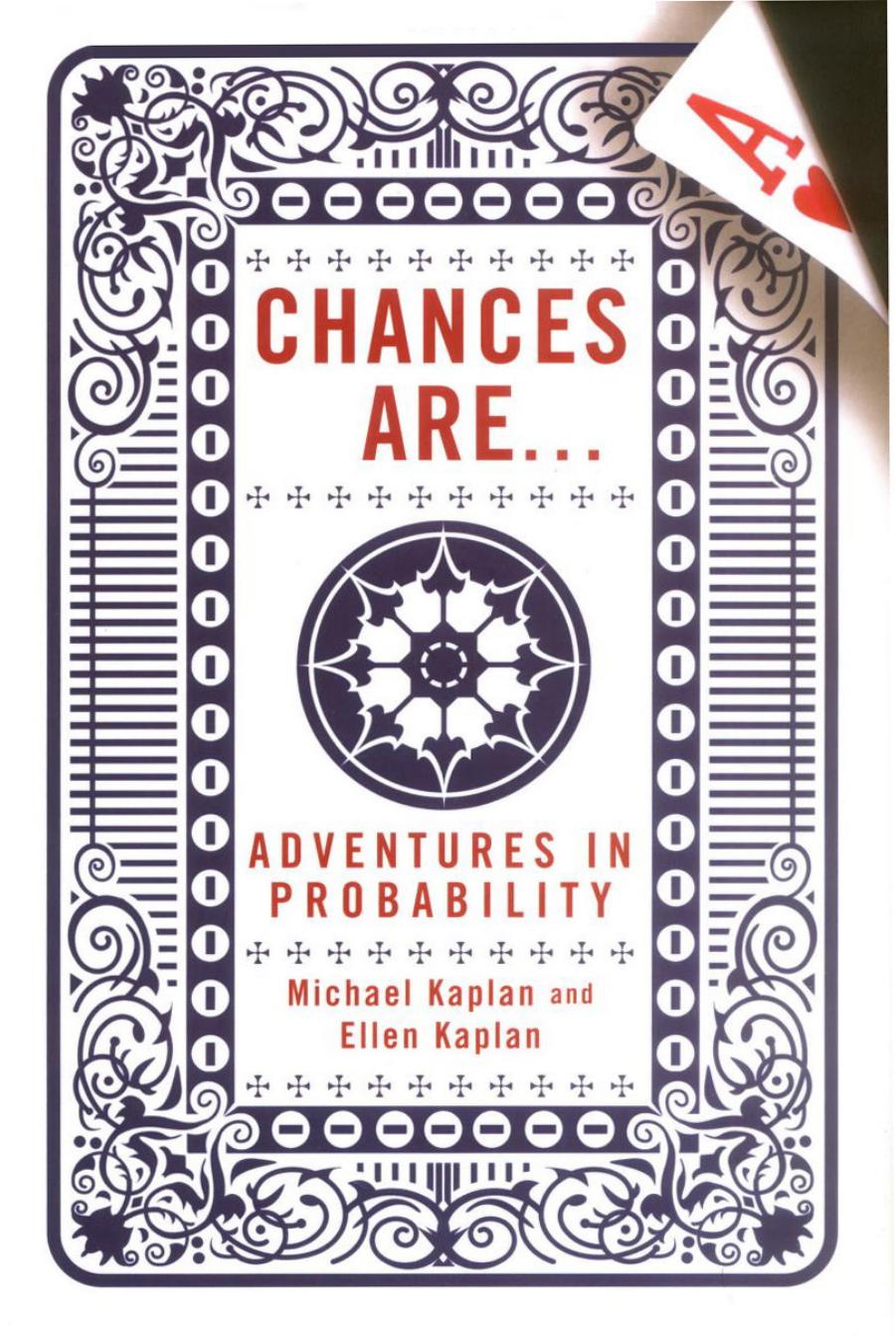Chances Are by Michael Kaplan

Author:Michael Kaplan
Language: eng
Format: epub, pdf
Publisher: Penguin Publishing Group
The word “control” has misleading connotations for medical testing: when we hear of a “controlled experiment,” it’s natural to assume that, somehow, all the wild variables have been brought to heel. Of course, all that’s really meant is that the experiment includes a control group who receive a placebo as well as a treatment group who get the real thing. The control group is the fallow ground, or the stand of wheat that has to make its way unaided by guano. Control is the foundation stone of meaning in experiment; without it, we build conclusions in the air. But proper control is not an easy matter: in determining significance, a false result in the control can have the same effect as a true one in the treatment group.
Let’s consider an obvious problem first: a control group should be essentially similar to the treatment group. It’s no good comparing throat cancer with cancer of the tongue, or the depressed with the schizophrenic. If conditions are rare or difficult to define, the control group will pose the same difficulties of sample size, chance effects, and confounded variables as the treatment group. Controls also complicate the comparison of trials from different places: is the reason your throat-cancer controls show a higher baseline mortality in China than in India simply a matter of chance, to be adjusted out of your data—or is there hidden causation: drinking boiling hot tea or using bamboo food scrapers?
Moreover, how do you ensure that the control group really believes that it might have received the treatment? In the 1960s, controls in some surgery trials did indeed have their chests opened and immediately sewn up again—a procedure unlikely to pass the ethics committee now. How would you simulate chemotherapy or radiation? Surreptitiously paint the patient’s scalp with depilatory cream? Patients are no fools, especially now in the age of Internet medicine: they know a lot about their conditions and are naturally anxious to find out whether they are getting real treatment. If the control is the foundation, there are some soils on which it is hard to build securely.
The word “placebo” is a promise: “I will please.” This promise is not a light matter. For a double-blind experiment to succeed, both the control group and the doctors who administer the placebo have to be pleased by it—they have to believe that it is indistinguishable from the active treatment. Considerable work has gone into developing placebos that, while inactive for the condition being tested, provide the side effects associated with the treatment.
But placebos can please too much: patients get drunk on placebo alcohol, they become more alert (although not more irritable) on placebo coffee. Placebo morphine is a more effective painkiller than placebo Darvon. The same placebo constricts the airways of asthmatic people when described as a constrictor and dilates them when described as a dilator. Red sugar pills stimulate; blue ones depress—brand-name placebos work better than generic. And higher dosages are usually more effective.
This placebo effect is well documented, but that doesn’t make it easy to deal with.
Download
This site does not store any files on its server. We only index and link to content provided by other sites. Please contact the content providers to delete copyright contents if any and email us, we'll remove relevant links or contents immediately.
Modelling of Convective Heat and Mass Transfer in Rotating Flows by Igor V. Shevchuk(6433)
Weapons of Math Destruction by Cathy O'Neil(6265)
Factfulness: Ten Reasons We're Wrong About the World – and Why Things Are Better Than You Think by Hans Rosling(4734)
A Mind For Numbers: How to Excel at Math and Science (Even If You Flunked Algebra) by Barbara Oakley(3301)
Descartes' Error by Antonio Damasio(3270)
Factfulness_Ten Reasons We're Wrong About the World_and Why Things Are Better Than You Think by Hans Rosling(3235)
TCP IP by Todd Lammle(3180)
Fooled by Randomness: The Hidden Role of Chance in Life and in the Markets by Nassim Nicholas Taleb(3105)
Applied Predictive Modeling by Max Kuhn & Kjell Johnson(3065)
The Tyranny of Metrics by Jerry Z. Muller(3065)
The Book of Numbers by Peter Bentley(2964)
The Great Unknown by Marcus du Sautoy(2691)
Once Upon an Algorithm by Martin Erwig(2641)
Easy Algebra Step-by-Step by Sandra Luna McCune(2628)
Lady Luck by Kristen Ashley(2576)
Practical Guide To Principal Component Methods in R (Multivariate Analysis Book 2) by Alboukadel Kassambara(2540)
Police Exams Prep 2018-2019 by Kaplan Test Prep(2540)
All Things Reconsidered by Bill Thompson III(2389)
Linear Time-Invariant Systems, Behaviors and Modules by Ulrich Oberst & Martin Scheicher & Ingrid Scheicher(2364)
